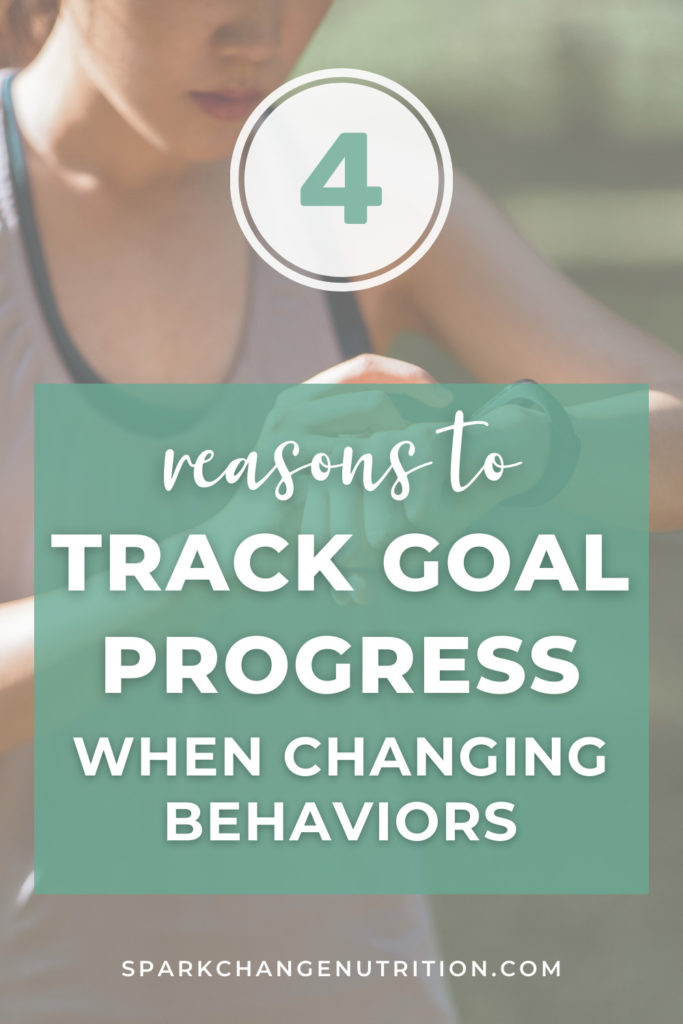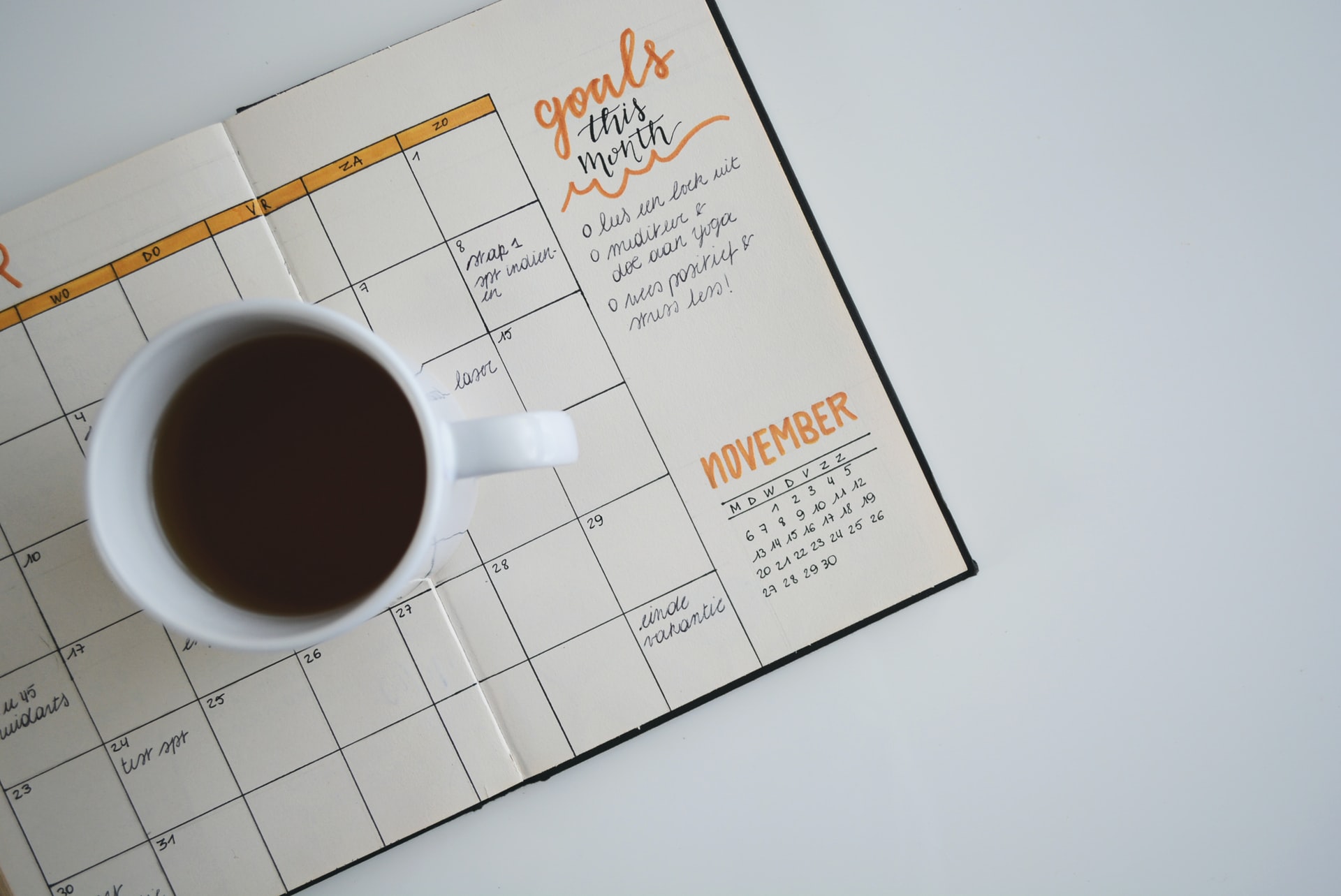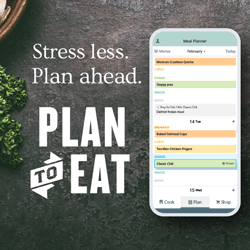I am kind of addicted to goal-setting. I think it has something to do with my ADHD brain; I like to jump from one thing to the next and get started on new and exciting projects. But regardless of whatever goal I am working towards, there is one thing that helps me to stay consistent and make progress: goal tracking. Goal tracking is quick, easy, and it can even be fun. And, perhaps more importantly, it can also increase your odds of achieving whatever it is that you are striving for. In this post, I’ll discuss what goal trackers are and why they work so well. In my next post, I’ll go over some of my favorite methods to track goal progress.
(Pin this post to read later)

Before I discuss the reasons you should track goal progress, let me give you a quick overview of what goal trackers are.
What is a goal tracker?
Goal trackers are self-monitoring systems used to keep track of how you are doing in achieving a target behavior. They can take many forms, ranging from physical sheets of paper to phone apps. Some examples of goal trackers are food logs, fitness journals, and meditation apps that keep a record of when and how long you meditated.
Goal trackers are a useful tool because of their versatility. You can find one (or create one) to track whatever you are working towards. The same goal tracker can also be used for different purposes. For example, when I worked as a clinical dietitian, I used food logs to help both patients who were trying to lose weight and patients who were trying to gain weight. So whatever your target behavior, there is a goal tracker out there for you.
How to track goal progress
Even though goal tracking sounds like one activity, there are actually several parts to it. First, you perform whatever behavior it is that you are tracking. Using a food log as an example, your behavior would be eating a meal or snack.
The next step of goal tracking is the actual tracking part, where you record what it is that you did (or didn’t do). When keeping a food log, this would include logging data about a meal or snack. This data may include when, where, and what you ate, as well as how you were feeling at the time.
The final step of goal tracking is going back at a later time and reviewing your log. This is an important part of tracking your goals, because things that you may not notice in the moment can become obvious when you are reviewing your goal tracker at a later time. This can include patterns in your behavior, factors that promote success, and/or obstacles to your progress, which I will now discuss below. You can review your tracker yourself, or, if you are working with a professional like a dietitian or a personal trainer, they can review your goal tracker for you.
How do goal trackers help you achieve success?
There are several ways that self-monitoring systems help us achieve greater success in making changes that last. They include:
- Increasing your self-awareness
- Helping identify challenges and obstacles to success
- Providing concrete evidence of your progress
- Encouraging your “best behavior”
When you track goal progress, you increase your self-awareness
One of the reasons goal tracking is so powerful is that it increases our awareness of our behavior.1
As an example, maybe you snack while you are watching TV at night. You’re not sure how much you are eating, and maybe you don’t even remember all the types of food you ate.
Now imagine you are keeping a food log and writing down everything that you eat. Suddenly you realize that tonight you actually ate four servings of potato chips, plus three different types of sweets! How did that happen? You didn’t even notice!
The act of writing down what you ate (goal tracking) made you conscious of your behavior. Now you have greater insight into yourself and the changes you need to make.
Tracking goal progress helps you to identify challenging areas
Another reason self-monitoring systems are so useful is that they shine a light on the areas where you are facing challenges. Looking back on your goal tracker, you can see where and when your struggles occurred. You can then use this knowledge to figure out why you got tripped up. Once you know why you didn’t meet your goal on any given day, you can adjust your plans to work around that obstacle.1
Taking the eating-while-watching-TV example a step farther, maybe the next night you record only one serving of chips in your food log. Thinking back on the day, you notice that yesterday, when you ate four servings, you had a stressful meeting with your boss. Today, when you only ate one serving, your boss was out of town. Suddenly you realize that you always eat more at night on days when you meet with your boss.
Armed with that knowledge, you can formulate a plan for how to handle cravings without overeating on days you meet with your boss.
Goal trackers provide a record of your successes
In addition to helping you identify potential pitfalls, goal trackers are also something more positive. They are a record of your success.
Sometimes when we humans are trying to change a behavior, especially something difficult, we tend to focus on our failures rather than our successes. A goal tracker helps us to avoid this pitfall by providing us with concrete proof of our accomplishments.
Having this proof makes us feel good about our actions, which then positively reinforces our behavior. This also increases our self-efficacy, which is how we perceive our own ability to accomplish something.1 As James Clear states in his book Atomic Habits:
Making progress is satisfying, and visual measures . . . provide clear evidence of your progress. As a result, they reinforce your behavior and add a little bit of immediate satisfaction to any activity.2
The act of keeping a goal tracker can encourage your best behavior
In my experience, people often “behave better” when they are using a goal tracker. This is especially true if someone else is going to be reading it. That’s because having someone review your goal tracker adds in a layer of accountability and encouragement to perform your target task.3 For example, do you really want to explain to your personal trainer why you skipped all of your exercise sessions this week? Or would you rather just do the exercises and avoid that uncomfortable conversation?
In summary
I hope this post has convinced you that efforts to track goal progress are worth it! As I mentioned above, tracking your goals not only helps you identify and overcome obstacles to your progress. It also gives you a record of your successes and is a reminder of all of the effort you have put into changing your behavior for the better. In essence, goal trackers are a useful tool in helping us achieve desired outcomes because they help us to know and understand ourselves better.
Now that I’ve got you fired up to start goal tracking, check out my next post on 8 simple (and fun!) goal tracking ideas to maximize success. Or click the download link below to get a copy of my free Daily Food Log & Planner and start goal tracking today!
References
- Bryant CX, Green DJ, Merrill S, eds. Ace Health Coach Manual: The Ultimate Guide to Wellness, Fitness, & Lifestyle Change. American Council on Exercise; 2013. (398-399, 672)
- Clear J. Atomic Habits: Tiny Changes, Remarkable Results. Penguin Publishing Group; 2018. (196)
- Frequently monitoring progress toward goals increases chance of success. https://www.apa.org. Accessed April 30, 2022. https://www.apa.org/news/press/releases/2015/10/progress-goals
Photo by Estée Janssens on Unsplash







0 Comments